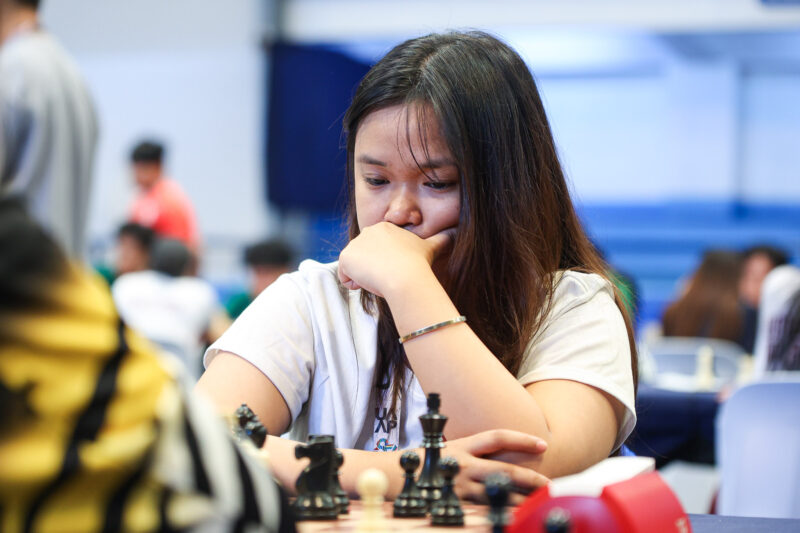IN RESPONSE to the Office of the Vice President for the Loyola Schools’ (OVPLS) mental health medication subsidy, some students have expressed the need for a concrete budget and resource allocation for the students’ mental health needs.
In an interview with The GUIDON, Vice President for the Loyola Schools (VPLS) Maria Luz Vilches, PhD explained that a subsidy of Php 10,000, which is good for a year, covers expenses on medicine, hospital bills, and consultations with medical professionals. It could be expanded to Php 20,000 when a student is confined in a hospital.
She also clarified that once the parent or guardian arrives and they can afford the medication, they are asked to reimburse the expenses paid by the subsidy, for the subsidy is not included in the University’s official budget.
The subsidy was first given in 2015 when a student had an emergency mental health issue. Since then, less than ten students have availed of the subsidy for their mental health needs, according to Vilches.
Ateneo Psyche President Alyssa Racho responded saying that “[it] would be better if money is really allotted for psychological services for students, especially now that the amount of individuals who have mental health concerns [is] increasing.”
Meanwhile, Ateneo PEERS Associate Vice President for Deployments Miguel Antonio then explained that “it has yet to be seen whether there is a lack of resources to keep this subsidy sustainable, given that the money used for the subsidy is not included in the University’s official budget.”
Addressing the need
Antonio mentioned that “the subsidy’s financial aspect ensures a concrete and essential option, offered by such a prominent office, which will hopefully ensure students that they are undoubtedly being supported by the University itself.”
“Ateneo has never turned a blind eye to issues of mental health,” he added, referring to the psychological services offered in the University through the Loyola Schools Office of Guidance and Counseling and The Ateneo Bulatao Center for Psychological Services.
On the other hand, Edgar* who said that he spends Php 15,000-50,000 a year on mental health medication and treatment, “[doubts] that this subsidy would do much to help Ateneans who are already paying a Php 110,000 [worth of] tuition fee every [semester], let alone be expanded to cover students’ medication fees.”
For Racho, the subsidy also needs other “support structures” that will improve how the University addresses the mental health issue on campus.
“The continuance of the subsidy should be considered along side other support structures like counselling services, resident psychologists [who can] handle more difficult situations or emergency cases, proper implementation of a mental health protocol, [and] balanced academic and [non-academic] programs to ensure [a] less stressful environment [for students],” she said.
An immediate response
Vilches discussed that the subsidy is the “initial step [in addressing the student’s emergency mental health needs] so that the student is responded to right away.”
After the creation of the subsidy in 2015, a formal application for financial assistance for students with psychiatric needs was crafted by the OVPLS for students who would need the subsidy for non-emergency cases. Students apply to the Loyola Schools Office of Guidance and Counselling (LSOGC) and submit documents with their personal information, reasons for availing the subsidy, and a medical certificate.
As for the reimbursement process, Vilches explained that “it’s really reimbursable because [it is not budgeted]. We have to get it from [the] emergency funds, and we cannot sustain that if there [are] no reimbursables.”
“[Parents] understand that the funds need to be replenished so that we can help others in need as well,” she added. On the other hand, if the medications cannot be paid back, the OVPLS would allow partial to no payment if parents could not afford to reimburse the expenses.
“There has to be collaboration between parents and the University because in a sense, we’re not a hospital [and] we’re not a health institution. We’re an educational institution, but we take care of students that are in that condition. At the same time, we have to let go of [what we cannot do], and let the parents and the family take care [of the expenses] later on,” she explained.
Alternative solutions
Besides emergency cases, Vilches also mentioned that the subsidy would also be available for students, particularly scholars, who cannot afford regular psychiatric medication.
She said that scholars who need financial assistance for psychiatric medication need to provide a medical certificate and file a request of subsidy to the Office of Admission and Aid (OAA). Upon approval of the request, the scholar would submit the receipts of the medication or treatment to the OAA.
According to Vilches, the basic requirement for students in applying is a medical certificate. After which, the LSOGC and the OAA “will look for more information” if there is a need for more endorsements for the subsidy.
Furthermore, Vilches explained that if students are to apply for the subsidy, “they [need to] approach [the LSOGC] and [the Office of Health Services]. Information about the subsidy is not publicly accessible, and according to her, it is through the consultation that students can know about the subsidy.
Like non-scholars, scholars also need to reimburse the expenses. However, she mentioned that those who are not able to avail of the subsidy can explore other services provided in the University such as the LSOGC and the Ateneo Bulatao Center for Psychological Services, although the latter also requires fees.
“Our guidance office and [psychological] services already have the protocols in place. [The subsidy] is just on top of it if there’s an emergency; if [students] need medicines,” Vilches said.
With this, Vilches reaffirmed the University’s stance on addressing mental health issues of students. “The case of mental health is something that we don’t take for granted,” she said. “We don’t make public announcements about things that call attention to sensitive matters. That’s the cura personalis in operation.”
“We can assure the students that we have [our team of offices] that we have put together when it comes to studying cases of students [immediately in those] situations and knowing what to do,” Vilches concluded.
*Editor’s note: Edgar’s real name has been withheld at his request to protect his identity.
Pull-out quote: There has to be collaboration between parents and the University because in a sense, we’re not a hospital [and] we’re not a health institution. We’re an educational institution, but we take care of students that are in that condition. –VPLS Maria Luz Vilches, PhD







